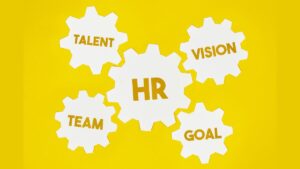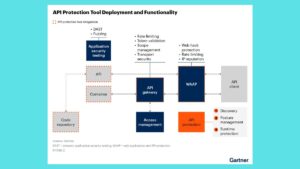The Role of CHROs in Shaping the Future of Work

The Ever Expanding Role of the Chief HR Officer (CHRO)
In today’s dynamic business environment, the role of Chief Human Resources Officers (CHROs) is more critical than ever. Traditionally responsible for managing an organization’s HR functions, CHROs now play a strategic role in shaping company culture, driving digital transformation, and navigating complex challenges such as talent acquisition, diversity, and employee well-being. As businesses face evolving demands, CHROs are stepping up as key players in shaping the future of work. In this blog, we’ll explore the expanding role of CHROs, their responsibilities, and the impact they have on modern organizations.
What is a CHRO?
A Chief Human Resources Officer (CHRO) is a senior executive responsible for overseeing the human resources function within an organization. As a member of the executive leadership team, the CHRO is tasked with developing and implementing HR strategies that align with the company’s overall business goals. This includes managing talent, shaping organizational culture, overseeing employee engagement, and ensuring regulatory compliance.
However, the role of CHROs has evolved beyond traditional HR functions. Today, they are involved in business strategy, digital transformation initiatives, and fostering inclusive and agile workplaces. Their influence extends across multiple areas, making them crucial contributors to organizational growth and resilience.
Key Responsibilities of CHROs
The role of CHROs encompasses a broad range of responsibilities that are essential for driving business success. Here are some of the key areas where CHROs make a significant impact:
- Talent Acquisition and Development
Attracting and retaining top talent is a priority for any organization, and CHROs play a central role in this effort:
- Strategic Workforce Planning: CHROs work closely with other leaders to anticipate talent needs based on business goals and market trends. This involves identifying skills gaps and planning for future talent requirements to ensure the organization is well-positioned for growth.
- Employee Development Programs: CHROs are responsible for creating development initiatives, including training programs, leadership coaching, and career growth opportunities, to help employees expand their skills and advance within the company.
- Succession Planning: Ensuring a strong leadership pipeline is a critical responsibility for CHROs. By developing robust succession plans, they prepare the organization for future leadership changes, reducing disruptions and maintaining stability.
- Shaping Organizational Culture
The CHRO is a key architect of company culture, shaping the values, behaviors, and work environment that influence employee engagement and performance:
- Building a Strong Culture: CHROs set the tone for the organization’s culture by promoting values that align with business objectives, such as innovation, collaboration, and inclusion. They work to create a positive employee experience that fosters a sense of belonging and shared purpose.
- Driving Diversity, Equity, and Inclusion (DEI) Initiatives: As organizations recognize the value of a diverse and inclusive workforce, CHROs lead efforts to implement DEI strategies. This includes establishing policies that promote equal opportunities, conducting bias training, and supporting employee resource groups (ERGs).
- Change Management: During periods of organizational change, such as mergers, restructuring, or digital transformation, CHROs play a crucial role in guiding employees through transitions. They implement change management strategies that address employee concerns, maintain morale, and ensure a smooth adaptation to new processes.
- Embracing Digital Transformation in HR
The digital era has brought significant changes to HR practices, and CHROs are at the forefront of adopting technology to optimize workforce management:
- Implementing HR Tech Solutions: CHROs oversee the adoption of HR technologies such as human capital management (HCM) systems, performance management platforms, and recruitment automation tools. These technologies enhance HR efficiency, streamline processes, and provide valuable data insights.
- Data-Driven Decision-Making: By leveraging analytics, CHROs gain insights into workforce trends, employee engagement, and turnover. This data-driven approach allows them to make informed decisions that improve HR strategies and contribute to better business outcomes.
- Remote and Hybrid Work Enablement: With the rise of remote and hybrid work models, CHROs are responsible for implementing policies and tools that support flexible work arrangements. This includes virtual collaboration platforms, remote onboarding processes, and employee well-being programs tailored for a dispersed workforce.
- Ensuring Employee Well-Being and Resilience
The well-being of employees is directly linked to productivity and job satisfaction. CHROs play a key role in promoting health and wellness initiatives:
- Employee Assistance Programs (EAPs): CHROs implement programs that provide mental health support, financial counseling, and stress management resources to help employees cope with personal and professional challenges.
- Work-Life Balance Programs: As work-life balance becomes a priority for many employees, CHROs create policies that encourage flexible work hours, paid time off, and family leave. These initiatives support employee well-being and reduce burnout.
- Crisis Management: In times of crisis, such as the COVID-19 pandemic, CHROs are responsible for developing response strategies that protect employees’ health and safety while ensuring business continuity.
- Aligning HR Strategy with Business Objectives
As strategic leaders, CHROs ensure that HR strategies are aligned with the overall business goals of the organization:
- Collaborating with Leadership: CHROs work closely with CEOs, CFOs, and other executives to integrate HR strategies into the business plan. This ensures that talent management, organizational development, and workforce planning support the company’s long-term vision.
- Driving Organizational Performance: By aligning HR policies with business outcomes, CHROs contribute to organizational performance. They focus on areas such as employee engagement, retention, and productivity, which have a direct impact on the bottom line.
- Monitoring Key Performance Indicators (KPIs): CHROs use metrics to measure the effectiveness of HR initiatives, including turnover rates, employee satisfaction scores, and time-to-hire. These KPIs help evaluate HR’s contribution to achieving business objectives and guide continuous improvement efforts.
The Evolving Role of CHROs in the Future of Work
As organizations continue to navigate the complexities of the modern workforce, the role of CHROs will continue to evolve. Here are some trends that will shape the future of CHROs:
- Increased Focus on Employee Experience (EX): The employee experience will become a central focus, with CHROs playing a vital role in creating a holistic approach to EX that addresses employees’ physical, emotional, and digital well-being.
- Integration of AI and Automation: The use of AI and automation in HR will expand, and CHROs will lead efforts to leverage these technologies for tasks such as predictive analytics, employee sentiment analysis, and process automation.
- The emergence of the CHRO as a Strategic Advisor: As the role of HR becomes more data-driven and integrated with business strategy, CHROs will increasingly serve as strategic advisors, influencing decisions that extend beyond traditional HR functions.
Conclusion
The role of the CHRO is no longer limited to managing HR operations; it has expanded to encompass strategic leadership that drives business success. By focusing on talent acquisition, culture building, digital transformation, employee well-being, and alignment with business objectives, CHROs are shaping the future of work.
As businesses continue to adapt to new challenges and opportunities, CHROs will remain at the forefront of guiding organizations toward a more agile, inclusive, and high-performing future. Their evolving role ensures that HR not only supports the business but also plays a key role in driving growth and innovation.







